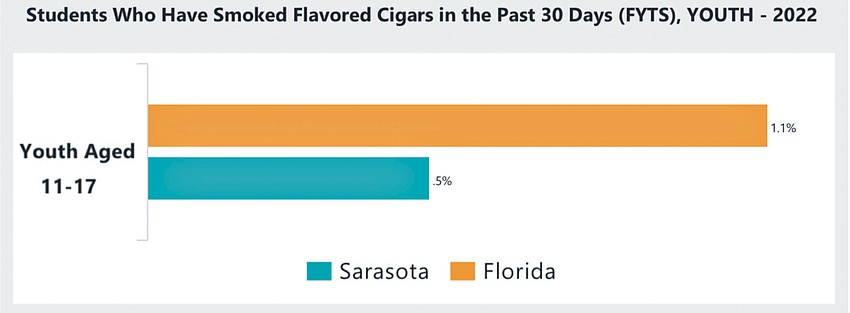- July 26, 2024
-
-
Loading

Loading
President Joe Biden and his administration are on a roll with policies that fly in the face of data and common sense.
In just the past few weeks, we heard about:
Another example, smaller in scale, but which hits Florida more directly and demonstrates what passes for analysis, in this administration’s policymaking is its proposed ban on flavored cigars. Sure, it’s a niche issue, but according to a study conducted by Policy Navigation Group, the ban could destroy up to 16,000 U.S. jobs and wipe out $4 billion of the industry’s sales.
Flavored cigars account for 47% of industry sales. As a hub for the nation’s cigar industry, Florida is among the top three states set to be hardest hit by prohibition, with an estimated 1,600 job losses and $85 million in lost labor income. The Premium Cigar Association alone counts more than 400 Florida small businesses as members, each with between five and 25 employees. Around 200 cigar manufacturers are either headquartered or have distribution centers in Florida.
Prohibition is undoubtedly bad news for Florida businesses, but are the public health benefits so great they could outweigh these harms and the loss of freedom for adult consumers? A significant rationale for banning flavored cigars is that they’re allegedly especially appealing to kids, enticing them to start smoking and become addicted. However, according to the Florida Youth Tobacco Survey, kids aren’t interested in smoking flavored cigars. In fact, in 2021, the latest year for which we have data, just 1.1% of 11- to 17-year-olds tried a flavored cigar in the past 30 days, a decline of more than 80% since 2010.

Even for adult cigar smokers, the health risks are less than those for cigarette smokers because of their use patterns. Adults who enjoy cigars smoke less frequently than cigarette smokers and don’t usually inhale. The National Academies of Sciences, Engineering and Medicine’s 2022 report on premium cigars found cigar smokers are at lower risk for all-cause mortality than cigarette smokers. The report also found there is “insufficient evidence to determine if occasional or nondaily exclusive cigar use, in general, is associated with increased health risks.”
Without prohibition, Florida has all but eliminated youth use of these products while ensuring an accommodative environment for small businesses and adults who enjoy cigars. Massachusetts and California are the only states to have banned flavored tobacco products. But neither state saw sufficient reasoning for a total ban on flavored cigars and made exceptions for these products based on the sale location or the price.
The FDA rule banning flavored cigars, introduced on April 28, 2022, currently sits with the U.S. Office of Management and Budget, which is responsible for reviewing the costs and benefits of the policy before it’s sent back to the FDA to be finalized. The Biden administration was expected to complete the rule before the end of the year but has pushed it back to March 2024.
A federal prohibition of flavored cigars would likely result in the same problems we expect to see from a ban on menthol cigarettes, which is also under consideration: a rise in illicit market sales trafficked from locations where the products are legal, such as Mexico. When combined with the proposed ban on menthol cigarettes, the prohibition of flavored cigars would give an enormous profit opportunity to cartels already engaged in drug smuggling, gun running and human trafficking.
With few to no public health benefits and significant risks of increasing the illicit market and destroying jobs, it’s difficult to ascertain the administration’s rationale for banning flavored cigars. Adults who prefer a flavored cigar are not imposing significant health or fiscal costs on nonsmokers. Instead of merely delaying prohibition and keeping Florida businesses in a state of regulatory limbo, the Biden administration should scrap the misguided ban on flavored cigars.
More broadly, this administration, and all others, should start its policy making with a real analysis to determine if there is a problem only the federal government can solve and if the proposed solution will actually work. Too many policies instead offer little chance of achieving the stated goals, while clearly having destructive consequences.
Guy Bentley is the director of Consumer Freedom at Reason Foundation. Adrian Moore is vice president at Reason Foundation.